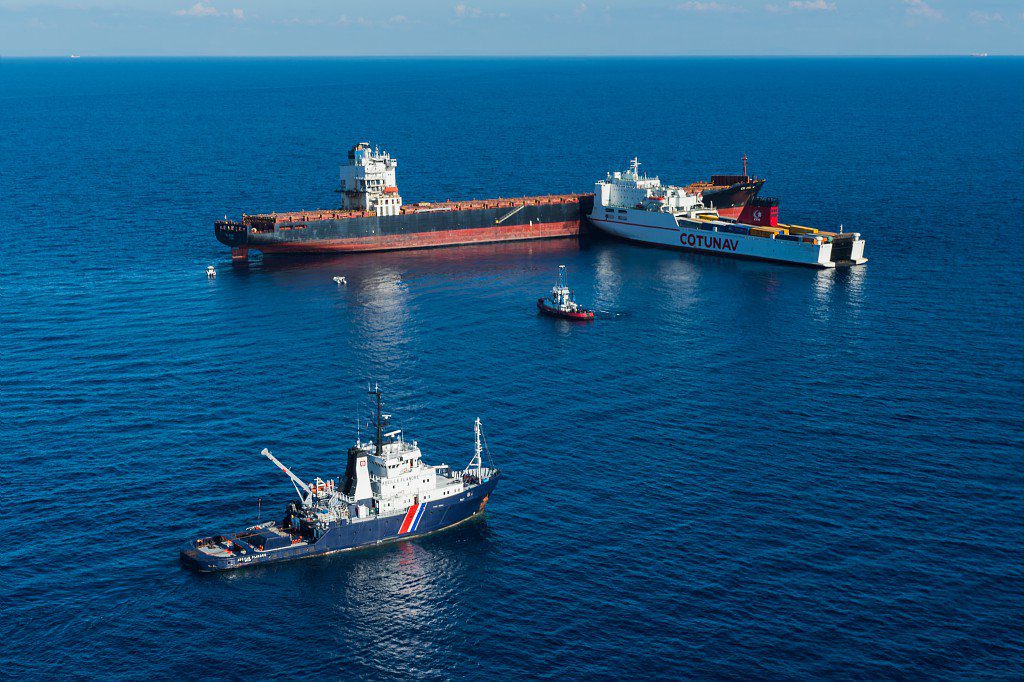By Captain George Livingston – Fatigue has the official attention of the international maritime community. From the likes of the International Maritime Organization (IMO), the USA’s National Transportation Safety Board (NTSB), the UK’s Marine Accident Investigation Branch (MAIB), the Australian Transport Safety Bureau (ATSB), etc., safety agencies worldwide have decided it’s a primary factor in seaborne accidents.
NTSB
In the United States, the NTSB has been focused on reducing fatigue in all modes of transportation for several decades. From a marine standpoint, fatigue has been identified as a factor as far back as the 1989 Exxon Valdez grounding. The 2010 Eagle Otome collision in Port Arthur, Texas drove the NTSB to take a closer look at state pilot fatigue. The IMO has formally addressed fatigue through regulation via rest/work rules in the 2010 Manila Amendments.
Recent Attention
The NTSB’s 2017, Safer Seas Digest concludes, “Despite wide-ranging research and well-published information about the dangers of excessive sleep loss, fatigue continues to be a leading cause of accidents in all modes of transportation.”
Safety4sea’s June 2018 issue, “The human element- effects of fatigue on ship safety” (Andrew Russ from Standard P&I Club), stated “Investigations into human element incidents identified fatigue to be the major contributing factor in 82% of the 66 recorded ground and collisions occurring between 0000 and 0600” (2004 MAIB Report data from 1989-1999).
Fatigue Elimination?
Safety agencies do mention other factors in accidents, but fatigue has been getting top billing for a long time. I would note, however, anyone working 24/7 on rotating schedules will have fatigue issues. One could have a week of rest, a month or four months of rest and be fatigued by the end of the very first twelve-hour shift. All the time off prior to working won’t matter if the twelve hours are tough; you will be fatigued. No combination of work/rest rules will change that fact. Reducing fatigue has been on everyone’s mind for a long time but what’s the next step? Eliminating fatigue? Improbable. Fatigue, like risk, is an inherent part of any 24 hours a day, seven days a week, operation, eliminating it is as elusive as eliminating risk.
What is the point of sophisticated Fatigue Risk Management plans when simple increased manning would solve the majority of issues regarding fatigue? After decades of focus and effort, have we come to a logical conclusion? Are there other critical issues affecting safety today that have been sidelined by a singular focus on fatigue? There is only so much that can be done on any single issue, fatigue is no exception.
Vicissitude
Anyone old enough to have witnessed both the 20th and now the 21st century would take note of a single word, change. The 21st Century has brought the kind of fundamental change last witnessed during the Industrial Revolution of the 18th century. One of the primary changes today has been how information is disseminated and distributed; lightning-fast, all-encompassing and immediately accessible. In many cases, technology developed to fit into the palm of one’s hand. Information-based technology that is so critical that it is indispensable, professionals must have it in order to perform their jobs. And so accessible that it very near demands one’s attention, to the point of distraction. And therein lies the crux of the matter of distraction.
21st Century Juggle
There have always been serious distractions on the bridge of a ship that must be coped with, radios, alarms, traffic, weather, etc. One hears the term ”multitasking” while on watch frequently, remaining focused is very demanding. Today, however, one must add the almost constant flow of information coming from our cell phones. As modern piloting goes, the cell phone has become a requirement of the job. There is little to debate here, it is not just a phone, it is a handheld mobile platform essential to the task at hand. The remarkable technology contained within is, at once, its greatest strength and its greatest weakness. We have to have it in order to perform the tasks required of the job, but having it is one of the greatest distractions mariners face. It’s a catch 22, can’t live without it, hard to live with it, what to do?
Whirlwind
First, how about acknowledging the distraction of these indispensable devices is real and acute. So acute that when combined with issues like traffic, weather, radios, etc. distraction may now the single greatest issue facing marine transportation, not fatigue. Fatigue has been eclipsed by a whirlwind. Whether at home or on ships, this small handheld device takes more and more attention to the point of distraction, even with the best intentions. Credit is due to the United States Coast Guard leadership as they have recognized and acknowledged distraction as a serious issue.
Tsunamis
The million-dollar question? What to do about it? In private, mariners would likely concede the point, distraction is an issue, but that concession sits upon a slippery slope in these times of increasing, worldwide criminalization of mariners. Can those in authority not move away from “dark ages” punitive, reactionary responses? If it is negligent to be distracted, is it criminal?
Answers and solutions should not be at the expense of the mariners sacrificing normal lives to do a much-underappreciated job. International safety and regulatory agencies including governmental bodies need to come together along with professional mariners to find reasonable solutions. We are talking about a tsunami of change that is just being identified, never mind quantified. As little as 10 years ago this was simply not an issue. Wisdom must be demonstrated when considering solutions to what is a very pressing issue for us all, perhaps more pressing than fatigue. Let’s hope those solutions don’t come at the expense of the mariner, we are capable of better than that.
Captain George Livingstone is a San Francisco Bar Pilot, co-author of ‘Tug Use Offshore’, contributing author of ‘IMPA On Pilotage’ and a regular contributor to gCaptain.

 Join The Club
Join The Club











